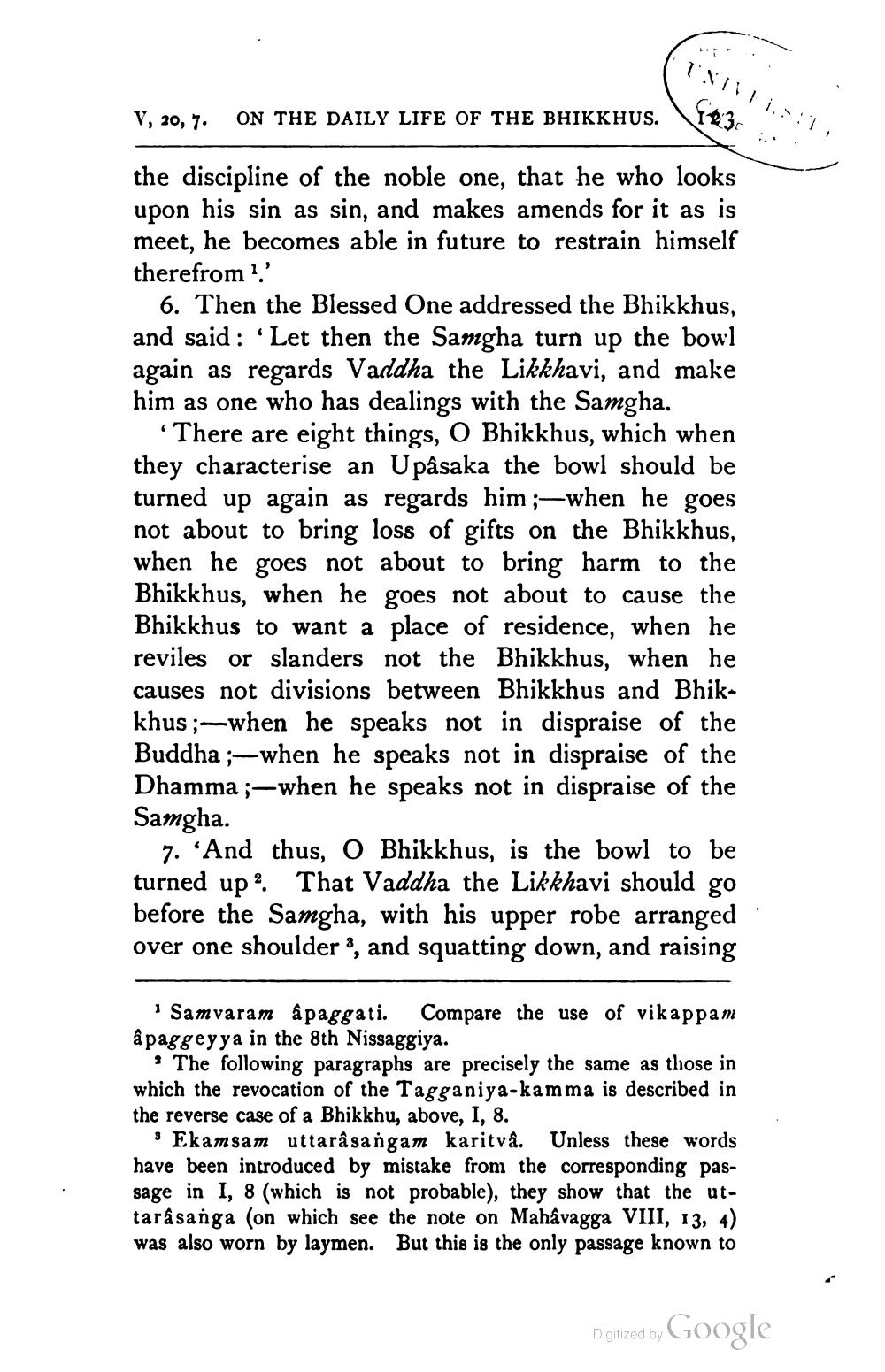________________
UNTIT
V, 20,7. ON THE DAILY LIFE OF THE BHIKKHUS.
103
3
:11
:.
the discipline of the noble one, that he who looks upon his sin as sin, and makes amends for it as is meet, he becomes able in future to restrain himself therefrom?'
6. Then the Blessed One addressed the Bhikkhus, and said: 'Let then the Samgha turn up the bowl again as regards Vaddha the Likkhavi, and make him as one who has dealings with the Samgha.
There are eight things, O Bhikkhus, which when they characterise an Upâsaka the bowl should be turned up again as regards him ;-when he goes not about to bring loss of gifts on the Bhikkhus, when he goes not about to bring harm to the Bhikkhus, when he goes not about to cause the Bhikkhus to want a place of residence, when he reviles or slanders not the Bhikkhus, when he causes not divisions between Bhikkhus and Bhikkhus;—when he speaks not in dispraise of the Buddha ;-when he speaks not in dispraise of the Dhamma ;—when he speaks not in dispraise of the Samgha.
7. 'And thus, O Bhikkhus, is the bowl to be turned up? That Vaddha the Likkhavi should go before the Samgha, with his upper robe arranged over one shoulder 3, and squatting down, and raising
* Samvaram â paggati. Compare the use of vikappam âpaggeyya in the 8th Nissaggiya.
9 The following paragraphs are precisely the same as those in which the revocation of the Tagganiya-kamma is described in the reverse case of a Bhikkhu, above, I, 8.
Ekamsam uttarâsangam karitvå. Unless these words have been introduced by mistake from the corresponding passage in I, 8 (which is not probable), they show that the uttarâsanga (on which see the note on Mahavagga VIII, 13, 4) was also worn by laymen. But this is the only passage known to
Digitized by
Digitized by Google




